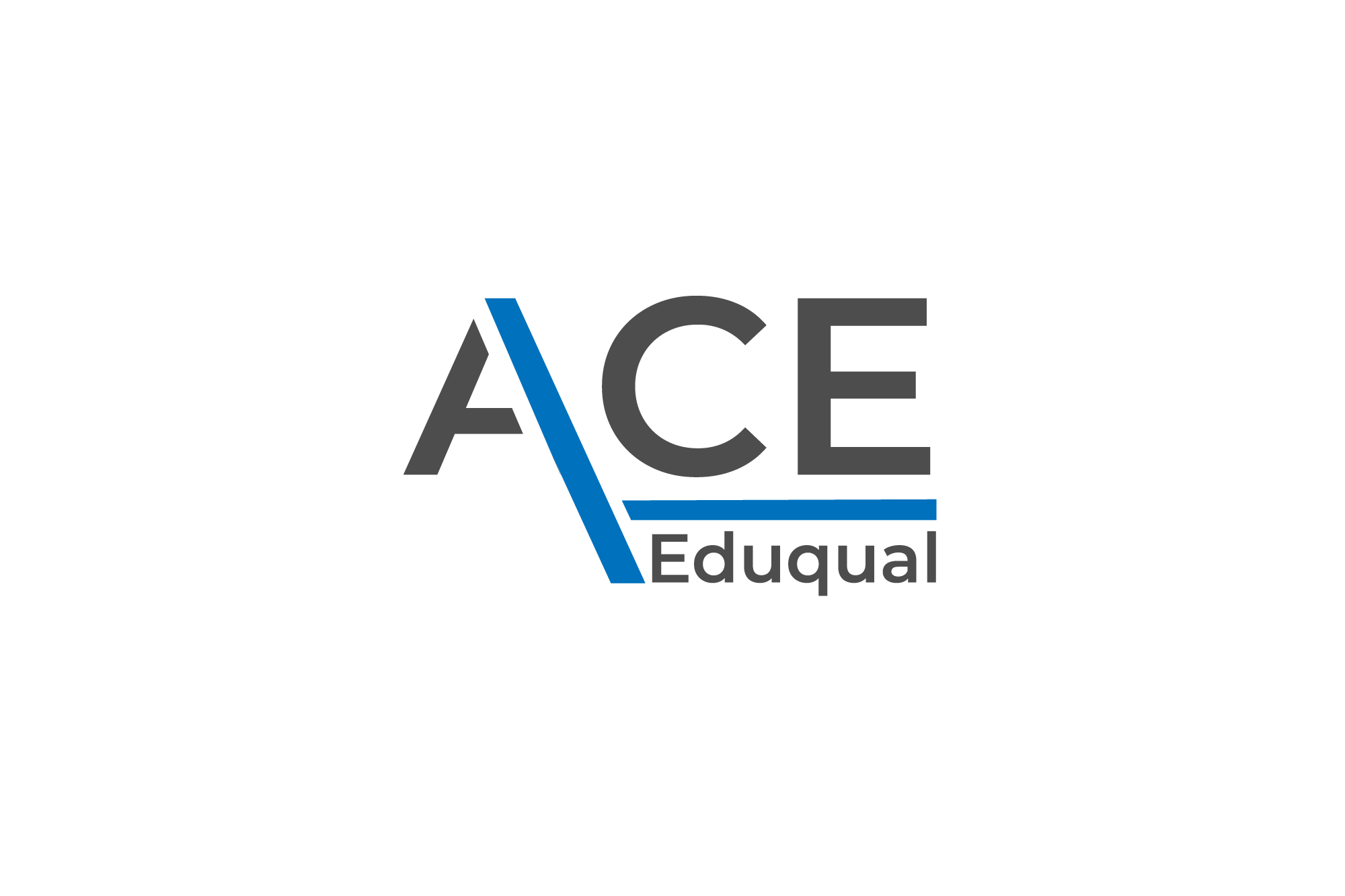Tourism and Hospitality Management

The Tourism and Hospitality Management course offers a comprehensive exploration of the dynamic and rapidly evolving field of tourism and hospitality. Students will delve into the intricacies of managing guest experiences, optimizing service delivery, and overseeing operations in various hospitality settings. The program covers topics such as tourism trends, event planning, accommodation management, food and beverage services, and sustainable tourism practices. Practical insights are combined with theoretical foundations, enabling students to develop strategic thinking, leadership skills, and a deep understanding of the industry’s nuances. Through interactive coursework, real-world case studies, and industry exposure, participants will gain the expertise required to excel in diverse roles within the global tourism and hospitality sector.
Our Tourism and Hospitality Management qualifications have been designed in collaboration with colleges, higher education institutions, and sector skills councils. They offer a pathway for individuals to progress to university degrees and cover Diploma Level- 3 to 7.
These qualifications provide the flexibility for learners to choose from a variety of optional units at each level. This allows them to specialize in specific areas while also gaining the essential core knowledge necessary for all managers.
- Build a robust groundwork in the fundamental theories, principles, and core concepts of Tourism and Hospitality Management.
- Attain a comprehensive grasp of practices in the tourism and hospitality industry, encompassing guest relations, service delivery, talent acquisition, performance evaluation, and technological innovations.
- Acquire expertise in employing strategic analysis and inventive strategies to tackle challenges in the realm of tourism and hospitality, crafting efficient solutions.
- Gain hands-on experience in operational aspects and projects related to tourism and hospitality through practical assignments and collaborative ventures.
- Comprehend the dynamics of nurturing talent, devising workforce strategies, and steering organizational transformations within the tourism and hospitality context.
- Cultivate adeptness in shaping policies pertinent to tourism and hospitality, boosting employee engagement, and fostering a positive organizational ethos.
- Probe into the realms of compensation and perks, utilize metrics and analytical tools, and endorse inclusivity and diversity in the tourism and hospitality workspace.
- Promote analytical thinking, adept problem-solving, and sharp analytical skills to adeptly address intricate challenges and propel success in the field.
- Enhance collaborative skills, communication prowess, and effective project management abilities by participating in group undertakings and tackling real-world scenarios in tourism and hospitality.
- Nurture research proficiencies and the capability to apply knowledge in conducting autonomous research in specialized arenas of Tourism and Hospitality Management.
Upon the successful completion of the Tourism and Hospitality Management program, graduates will encounter a broad spectrum of career avenues within the expansive realm of tourism and hospitality. Potential professional trajectories encompass roles such as hospitality manager, tourism consultant, guest relations specialist, event coordinator, training and development manager in hospitality, tourism analyst, compliance officer in hospitality, and advocate for guest relations.
Graduates will find opportunities to embark on diverse career paths, spanning across industries such as luxury resorts, travel agencies, event planning firms, hospitality consulting agencies, non-profit tourism organizations, government tourism bodies, and the option to pursue advanced studies in the domain of tourism and hospitality management.
Course Details

Level 3- National Diploma in Tourism and Hospitality Management
Course Overview:
The Level 3- National Diploma in Tourism and Hospitality Management introduces students to the fundamental concepts and practices of the dynamic tourism and hospitality industry. This program provides a solid foundation in guest services, event planning, accommodation management, and sustainable tourism practices. Students will develop essential skills in customer service, communication, and teamwork, preparing them for entry-level roles within the sector. The course blends theoretical knowledge with practical insights, equipping students with the tools needed to navigate the diverse landscape of tourism and hospitality.
Equivalences:
The Level 3- National Diploma in Tourism and Hospitality Management is equivalent to two A-levels and holds recognition from various educational and professional institutions. This qualification serves as a stepping stone for individuals aspiring to pursue higher education in tourism and hospitality or seeking entry-level positions within the industry.
Course Contents:
The course content of the Level 3- National Diploma in Tourism and Hospitality Management typically covers a range of advanced topics. Here are the topics covered:
- Introduction to Tourism and Hospitality Management
- Customer Service and Guest Relations
- Event Planning and Management
- Accommodation Operations and Housekeeping
- Food and Beverage Services
- Travel and Tourism Industry Trends
- Sustainable Tourism Practices
- Communication and Teamwork Skills in Tourism
Assignment Criteria:
The qualification assessment criteria are based on assignments, but in order to pass, the learner must complete all of the unit’s learning requirements. At the completion of each unit, an interview will be held as proof that the work truly belongs to the learner.
Entry Requirements:
The specific entry requirements for the Level 3- National Diploma in Tourism and Hospitality Management may include:
- A minimum age requirement (e.g., 16 years old)
- Completion of O-level/ 10th Standard or equivalent qualifications.
- Completion of a relevant Level 2 qualification in Tourism and Hospitality Management or a related subject.
- Interest in the tourism and hospitality industry and a desire to learn its foundational principles.
- Proficiency in English language (e.g., a minimum level of English language qualification).
Course Duration:
The qualification has recommended course duration of 1 year.
Note: However the course duration may be increased to meet additional learning needs if required.
Level 4- Extended Diploma in Tourism and Hospitality Management
Course Overview:
The Level 4- Extended Diploma in Tourism and Hospitality Management offers a comprehensive exploration of the tourism and hospitality industry, delving into advanced concepts and practices. This program provides students with in-depth knowledge of guest services, event management, revenue optimization, and sustainable tourism strategies. Participants will enhance their critical thinking, leadership skills, and strategic decision-making abilities, preparing them for mid-level positions within the industry. The course combines theoretical insights with practical applications, enabling students to navigate the complex landscape of tourism and hospitality.
Equivalences:
The Level 4- Extended Diploma in Tourism and Hospitality Management is equivalent to the first year of an undergraduate degree and holds recognition from esteemed educational and professional institutions. This qualification is ideal for individuals aiming to deepen their expertise in tourism and hospitality or progress to more advanced levels of education in the field.
Course Contents:
The course content of the Level 4- Extended Diploma in Tourism and Hospitality Management typically covers a range of advanced topics. Here are the topics covered:
- Advanced Tourism and Hospitality Management Principles
- Guest Experience Enhancement and Service Excellence
- Event Planning, Execution, and Evaluation
- Revenue Management and Pricing Strategies
- Hospitality Operations Management
- Food and Beverage Management
- Marketing Strategies in Tourism and Hospitality
- Sustainable Tourism Development and Practices
- Cultural and Heritage Tourism
- Research Methods in Tourism and Hospitality
Assignment Criteria:
The qualification assessment criteria are based on assignments, but in order to pass, the learner must complete all of the unit’s learning requirements. At the completion of each unit, an interview will be held as proof that the work truly belongs to the learner.
Entry Requirements:
The specific entry requirements for the Level 4– Extended Diploma in Tourism and Hospitality Management are included:
- Minimum age requirements (usually 18 years or older).
- Completion of A-level/ 12th Standard or equivalent qualifications.
- Completion of a Level 3 qualification in Tourism and Hospitality Management or a related field.
- A solid foundation in fundamental principles of tourism and hospitality.
- English language proficiency, demonstrated through language tests or previous education in an English-speaking environment.
Course Duration:
The qualification has recommended course duration of 1 year.
Note: However the course duration may be increased to meet additional learning needs if required.
Level 5- Higher National Diploma in Tourism and Hospitality Management
Course Overview:
The Level 5- Higher National Diploma in Tourism and Hospitality Management is an advanced program designed to equip students with a deep understanding of the complexities of the tourism and hospitality industry. This diploma focuses on refining strategic thinking, enhancing leadership capabilities, and honing expertise in areas such as destination management, sustainable tourism, marketing strategies, and revenue optimization. Students will develop the skills needed to excel in managerial roles within the industry. The course strikes a balance between theoretical knowledge and practical applications, empowering students to navigate the evolving landscape of tourism and hospitality.
Equivalences:
The Level 5- Higher National Diploma in Tourism and Hospitality Management is equivalent to the second year of an undergraduate degree and holds recognition from esteemed educational and professional institutions. This qualification is tailored for individuals seeking to elevate their knowledge and expertise in tourism and hospitality or progress to more advanced levels of education.
Course Contents:
The course content of the Level 5- Higher National Diploma in Tourism and Hospitality Management typically covers a range of advanced topics. Here are the topics covered:
- Strategic Tourism and Hospitality Management
- Destination Marketing and Management
- Sustainable Tourism Strategies
- Hospitality Revenue and Yield Management
- Event Management and Operations
- Consumer Behavior and Tourism Experience
- E-Tourism and Digital Marketing in Hospitality
- Cultural Tourism and Heritage Management
- Contemporary Issues in Tourism and Hospitality
- Research Methods in Tourism and Hospitality
Assignment Criteria:
The qualification assessment criteria are based on assignments, but in order to pass, the learner must complete all of the unit’s learning requirements. At the completion of each unit, an interview will be held as proof that the work truly belongs to the learner.
Entry Requirements:
The specific entry requirements for the Level 5- Higher National Diploma in Tourism and Hospitality Management may include:
- Minimum age requirements (usually 18 years or older).
- A Level 4 Diploma, a year 1 of bachelor’s degree or equivalent qualification in Tourism and Hospitality Management or a related field.
- Profound understanding of strategic principles in tourism and hospitality.
- English language proficiency, demonstrated through language tests or previous education in an English-speaking environment.
Course Duration:
The qualification has recommended course duration of 18 Months.
Note: However the course duration may be increased to meet additional learning needs if required.
Level 6- International Diploma in Tourism and Hospitality Management
Course Overview:
The Level 6- International Diploma in Tourism and Hospitality Management is an advanced and specialized program aimed at cultivating expertise in the intricate nuances of the tourism and hospitality industry. This diploma focuses on refining strategic leadership, critical analysis, and innovation within areas such as sustainable tourism development, global hospitality trends, strategic marketing, and experiential management. Students will develop the skills necessary to excel in senior management and executive roles within the industry. The program seamlessly integrates theoretical insights with practical applications, equipping students to address the evolving challenges and opportunities within the dynamic field of tourism and hospitality.
Equivalences:
The Level 6- International Diploma in Tourism and Hospitality Management is recognized as equivalent to the final year of an undergraduate degree and holds acknowledgment from esteemed educational and professional institutions. This qualification is tailored for individuals aiming to achieve mastery in the field of tourism and hospitality or seeking to pursue advanced education in the discipline.
Course Contents:
The course content of the Level 6- International Diploma in Tourism and Hospitality Management typically covers a range of advanced topics. Here are the topics covered:
- Strategic Leadership in Tourism and Hospitality
- Global Tourism Trends and Destination Management
- Sustainable Tourism Development and Practices
- Strategic Marketing and Branding in Hospitality
- Hospitality Revenue Optimization and Financial Management
- Experiential Tourism Management
- Cross-Cultural Management in the Hospitality Industry
- Crisis and Risk Management in Tourism
- Strategic Human Resource Management in Hospitality
- Entrepreneurship and Innovation in Tourism
- Research Methods in Tourism and Hospitality
- Major Research Project in Tourism and Hospitality
Assignment Criteria:
The qualification assessment criteria are based on assignments, but in order to pass, the learner must complete all of the unit’s learning requirements. At the completion of each unit, an interview will be held as proof that the work truly belongs to the learner.
Entry Requirements:
The course content of the Level 6- International Diploma in Tourism and Hospitality Management typically may include:
- Minimum age requirements (usually 21 years or older).
- A year 2 of bachelor’s degree, A Level 5 Diploma or equivalent qualification in Tourism and Hospitality Management or a related field.
- Demonstrated understanding of strategic principles in tourism and hospitality
- English language proficiency, demonstrated through language tests or previous education in an English-speaking environment.
Course Duration:
The qualification has recommended course duration of 18 Months.
Note: However the course duration may be increased to meet additional learning needs if required.
Level 7- Post Graduate Diploma in Tourism and Hospitality Management
Course Overview:
The Level 7- Post Graduate Diploma in Tourism and Hospitality Management is an advanced and specialized program aimed at nurturing exceptional leadership, strategic thinking, and innovation within the realm of tourism and hospitality. This diploma delves into the intricacies of global tourism trends, sustainable development, experiential management, strategic marketing, and crisis preparedness. Graduates will possess the acumen to shape industry landscapes, lead organizational transformation, and drive innovation. The course seamlessly integrates theoretical insights with practical applications, preparing students to make profound contributions to the ever-evolving field of tourism and hospitality.
Equivalences:
The Level 7- Post Graduate Diploma in Tourism and Hospitality Management is recognized as equivalent to a Master’s degree and holds acknowledgement from esteemed educational and professional institutions. This qualification is tailored for individuals seeking to attain mastery in the domain of tourism and hospitality or aspiring to occupy influential leadership positions in the industry.
Course Contents:
The course content of the Level 7- Post Graduate Diploma in Tourism and Hospitality Management typically covers a range of advanced topics. Here are the topics covered:
- Advanced Leadership in Tourism and Hospitality
- Global Tourism Trends and Sustainable Development
- Experiential Management and Innovation
- Strategic Marketing and Branding in Hospitality
- Strategic Financial Management in Tourism
- Crisis Management and Resilience in Hospitality
- Strategic Human Resource Management in Tourism
- Cultural Tourism and Heritage Management
- Ethical Considerations in Tourism and Hospitality
- Technology and Innovation in Hospitality
- Entrepreneurship and Startups in Tourism
- Research Methods and Design in Tourism
- Critical Analysis of Tourism Literature
- Major Research Project in Tourism and Hospitality
- Industry Consultancy and Strategic Planning
Assignment Criteria:
The qualification assessment criteria are based on assignments, but in order to pass, the learner must complete all of the unit’s learning requirements. At the completion of each unit, an interview will be held as proof that the work truly belongs to the learner.
Entry Requirements:
The specific entry requirements for the Level 7- Post Graduate Diploma in Tourism and Hospitality Management may include:
- A minimum age requirement (e.g., 22 years old)
- A complete Bachelor’s degree, UK level 6 diploma or an equivalent overseas qualification.
- Demonstrated expertise in strategic principles in tourism and hospitality, as well as significant industry experience.
- English language proficiency, demonstrated through language tests or previous education in an English-speaking environment.
Course Duration:
The qualification has recommended course duration of 2 years.
Note: However the course duration may be increased to meet additional learning needs if required.

